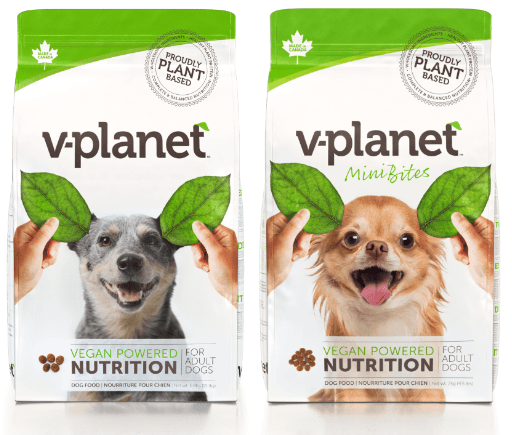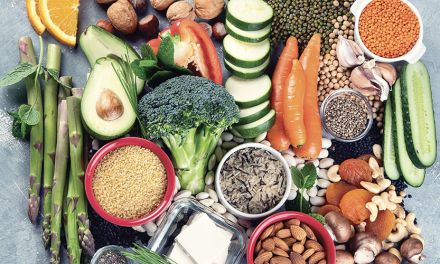By Brandon Forder
The pet food industry began in 1860, when James Spratt, an electrician from Ohio, travelled to England for work, and took notice of local dogs being fed leftover hardtack: a shelf-stable biscuit made for sailors. Spratt recognized a niche market opportunity, and began manufacturing “Spratts Dog & Puppy Cakes”. These biscuits came in a fifty-pound bag, and were made from wheat, vegetables, beetroot, and gelatin. Because this was considered a luxury item, only upper class gentlemen could afford to feed their dogs this commercial product.
Now, more than 150 years later, the global pet marketplace is valued at US$109 billion, and is present in practically every country on Earth. The biggest slice of the pet industry pie is pet foods and consumables, where there is now an ever-broadening spectrum of convenient, consumer-friendly options. Characterizations of consumable goods are broken down by quality, ranging from discount grocery brands, to high-quality, human-grade raw diets, gourmet canned foods, and more. Today, it is not unusual to find pet products containing certified organic ingredients, health-boosting supplements, non-GMO labels, and even exotic imported meats from as far away as Australia and New Zealand.
Healthy products for companion animals are becoming more affordable, too, as manufacturers of all shapes and sizes rush to enter the pet marketplace. It is predicted that the global pet industry will be valued at over US$200 billion by 2025, making it among the largest, and fastest growing global industries.
Even with our small population, Canada still plays a significant role in shaping the future of the global pet industry, as we (individually) spend more on our pets than almost anyone else in the world. With a market value of almost US$10 billion, Canada is its own small pet industry powerhouse, boasting some of the industry’s most innovative and influential players.
So what’s the next big thing in the Canadian pet industry?
In North America, there have been fascinating advances in pet food development and manufacturing, which may completely re-shape the Canadian Pet food landscape over the next decade.
Pet product manufacturers are making tremendous progress in the development of sustainable pet foods made from clean, renewable sources, with vegan and plant-based dog foods leading the charge. While this may come as a surprise to many, plant-based dog foods are not a new thing.
Historically, plant-based dog foods were used to aid in treating dogs suffering from protein allergies; the biggest culprits most commonly being chicken, and beef. Although plant-based diets are effective in eliminating common allergy symptoms in short order, there were few options available, and many dogs found these foods to be bland, unpalatable, or to contain less desirable ingredients.
Thankfully, responding to high demand for hypoallergenic options for allergy-prone pets, manufacturers began introducing exotic, novel proteins like venison, rabbit, kangaroo, and even alligator. Pets suffering from meat allergies generally perform well after moving to a novel protein, limited-ingredient diet.
More recently, dog owners have been making the switch to plant-based diets for other reasons; animal rights, sustainability, and eco-consciousness. According to the the U.S Environmental Protection Agency, factory farming, and the production of meat accounts for approximately 14.5% of global greenhouse gases, making it one of the biggest contributors to global warming.
In order to reduce their carbon footprint, an increasing number of people are making significant efforts to eliminate or decrease their consumption of animal products. With this growing demand for high-quality, plant based options, pet food manufacturers are catching on and developing their own products to attract the attention of the eco-conscious pet owner.
If done properly, a plant-based dog food is as nutritionally complete as their meat-based counterparts, using high-quality protein sources such as peas, lentils, quinoa, and more. Many dog owners report positive health benefits when switching to a plant-based diet, including increased energy and vitality, elimination of digestive problems, and a healthier-looking skin and coat. Plant-based dog foods are more sustainable, too, as they take significantly less resources to produce compared to beef, chicken, and other animal proteins.
The most popular plant-based dog foods include brands like Gather and Natural Balance, both with their vegan dog food offerings, and most recently, the popular California-based brand ‘v-dog’ has recently launched their ‘v-planet’ vegan dog food in Canada, to much praise.
When considering a plant-based diet for their dogs, proper and complete nutrition is the biggest concern of eco-conscious pet owners. While it’s commonly believed that dogs are carnivores, akin to their wild wolf ancestors, that is simply not true with today’s domesticated dogs. After thousands of years of being man’s best friend, dogs have evolved to digest high-starch, carbohydrate-rich diets with ease—something many carnivores cannot do.
Of course, as with any diet, a vegan diet can have its downfalls. For example, certain dogs simply won’t eat it. This is less common with larger dogs, as they are typically highly food motivated and eat anything offered to them. Smaller dogs tend to be picky eaters, making it more difficult to maintaining long-term interest in certain foods. And then you have the dogs who don’t respond well to certain changes in diet, which may lead to digestive problems, skin and coat issues, and more.
Another soon-to-be-major player entering the pet food marketplace is crickets. Believe it or not, crickets are one of the cleanest and healthiest proteins in existence. Crickets are harvested at the end of their life cycle, too, which makes them more animal-wellness-friendly than other farmed animals.
Cricket-based flours have already made their way into health food and supplement stores, in the forms of protein bars, baking flours, and even treats. New, cricket-based dog treats have been making waves in the last year, as more brands are adopting this clean protein source for their innovative products. In many Asian countries, bug-based protein sources have been the norm for decades. They’re inexpensive to produce, clean, easy to digest, and have highly bio-absorbable proteins. And many also report enjoying the flavour and crunchiness.
Finally, a highly in-demand, and somewhat controversial supplement entered the marketplace earlier this year: CBD. Derived from either cannabis, or its sister plant hemp, CBD-infused products are predicted to become a serious factor in pet healthcare over the next decade. While testing is still underway before legislation can be put in place, thousands of pet owners are already turning to CBD for everything from anxiety to joint pain to seizures. CBD-infused oils and treats are already being produced for the pet-owning public, and to take it a step further, Canadian manufacturers are testing and developing CBD-infused dog foods as we speak.
The future of Canadian pet foods includes plant-based dog foods, sustainable sourcing, eco-friendly manufacturing, unique proteins, and even crickets. The pet industry in our great country is a fascinating place, with an ever-changing landscape. With the legalization of CBD oils for pets on the horizon, it’s set to get a whole lot more interesting.
So, what is the future of the pet industry in Canada?
Simply… innovation.
Brandon Forder is a Pet Health & Nutrition Expert and owner of Canadian Pet Connection, Meaford. CanadianPetConnection.ca









